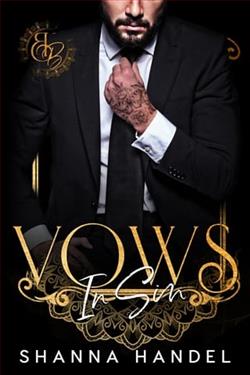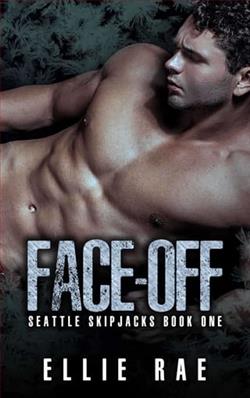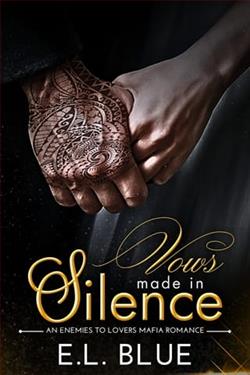Page 61 of Foul Days
“How did you learn it then?”
“I grew up in the Docks.”
Kosara gaped at him. She’d heard of the Belogradean Docks, most often in the context of, “never go to the Belogradean Docks.” Not a place for a respectable lady or gentleman, she’d been told. All she’d find there were shady characters, seedy pubs, and suspect street food.
“How come you don’t speak like you’re from the Docks?” she asked.
“What do you mean?”
Kosara hesitated, realising a second too late she’d said something stupid. She’d hated it when the Belogradeans told her she was so well spoken for a Chernogradean. As if she was a circus animal who’d performed an impressive flip.
“I’d have expected you to have a stronger accent,” she said carefully.
“My mum says if you speak with a strong accent, people think you’re stupid.”
“Wise woman.”
Kosara watched, equally disappointed and fascinated, as his hands moved fast, the lock pick glinting between his fingers. It was clearly not his first time, but the lock was proving tricky. The fine line between his eyebrows deepened. Kosara even caught him mouthing a swear once or twice. She shifted from one foot to the other, casting nervous glances towards the police station.
To distract herself, she started talking. “I knew a guy who once got so drunk he broke into his own house, then reported himself to the police the next morning.”
“He didn’t.”
“He did! He was walking home one night after the pub, completely off his head, and he saw a house that’d been left unlocked. So, he snuck in, found the secret stash under the mattress, and went to buy more booze. The next morning, he woke up, realised he’d been burgled, went to the police station, and reported it.”
“Was he from Chernograd?”
“Why? Because people from Chernograd are all thieves and drunks, and you Belogradeans are all squeaky-clean, law-abiding Goody Two-shoes?”
“I didn’t mean—”
“Yeah, he was from Chernograd.”
Kosara froze as the door of the police station opened. A young officer came out, tightly wrapped in a navy-blue coat, an unlit cigarette hanging between his gritted teeth. He tried to light it, cupping it with his hand against the wind.
“Damn it,” Kosara whispered. “The police.” Then she thought about it and added, “The Chernogradean police. Hurry up.”
“I’m doing my best.”
The police officer clicked his lighter again, then shook his head and looked around. His gaze fell on Kosara. He walked towards her.
“He’s coming,” Kosara said. She glimpsed the lock pick for a split second when Asen slid it in his pocket. The next moment, he casually leaned on the door frame with a lit cigarette in his hand. It was like a magic trick.
“Excuse me,” the young policeman said. “Do you have a light?”
Asen handed him a box of matches.
“Thanks. Cold morning, isn’t it?” The implication in his voice was clear: What are you two doing out here?
“They always are,” Kosara said, “this time of year.”
“I bet you can’t wait to get inside and put the fire on.”
Kosara laughed. “You have no idea. Just having a cigarette before going in. My landlady doesn’t like it when he smokes inside.” She pointed at Asen with her thumb. He did an excellent impression of a Chernogradean man, all silent and brooding. He’d have looked like a local, if only it wasn’t for his stupid coat.
“Been away?” The policeman nodded towards the snow on the roof.
“Visiting family,” Kosara said, praying he didn’t mention the lack of bags. “My mum always makes way too much food for the holidays. She insisted we stay over until we’d at least finished the baklava.”















